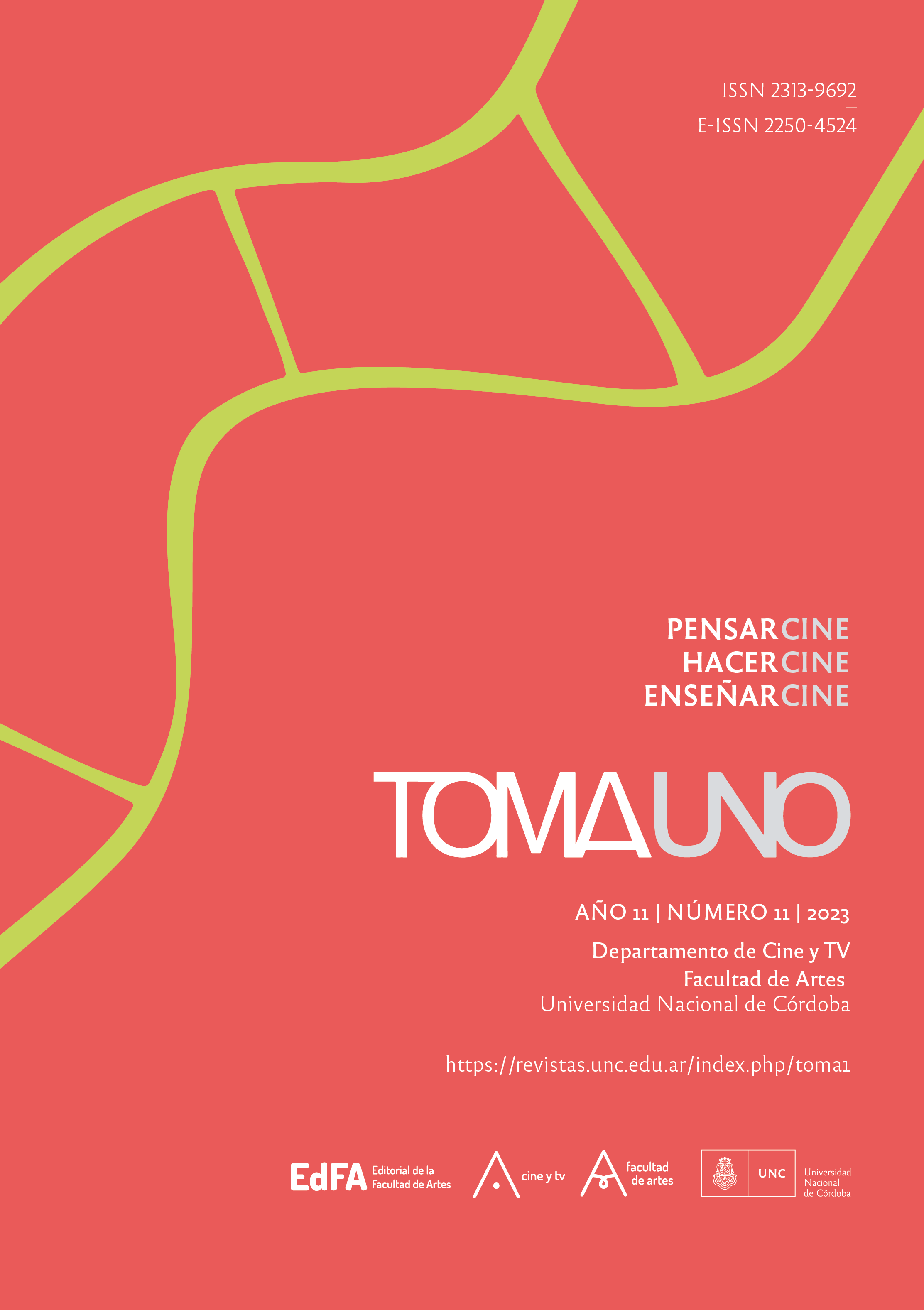Post-dictatorship memories: some official, threatened, and preserved audiovisual records
DOI:
https://doi.org/10.55442/tomauno.n11.2023.42860Keywords:
Cinema, Memories, Dictatorship, Democracy, TransitionAbstract
Recent statements and calls to think about and account for the 40 years of uninterrupted democracy are different. This is logical given the traumatic nature of the civil-military dictatorship in Argentina and its toll of 30,000 disappeared detainees. Post-dictatorial and democratic Argentina has been able to construct a network of social discourses with a strong interpellation of memory dynamics. Cinema has made a substantive contribution to these processes. We argue here the importance of film and video concerning history as a way of approaching the testimonies about the crimes of the dictatorship and the procedures of memory during these 40 years of democracy. In this paper we will develop the analysis of three audiovisuals –the fiction La Historia Oficial; the documentary Juan, como si nada hubiera sucedido; and ATC's recordings of the Trial of the Juntas and its derivations– from the democratic stage, as a great arc of 40 years, where the evocation of the post-dictatorial transition provokes some meanings that deserve to continue to be thought from three axes: representation, document, and political action.
Downloads
References
Aprea, G. (2015). Documental, testimonios y memorias. Miradas sobre el pasado militante. Buenos Aires: Manantial.
Comisión Nacional sobre la Desaparición de Personas (1984). Informe Nunca Más. Buenos Aires: Eudeba.
Feld, C. (2002). Del estrado a la pantalla: las imágenes del juicio a los ex comandantes en Argentina. Buenos Aires: Siglo XXI.
Margulis, P. (2020). Transiciones de lo real. Transformaciones políticas, estéticas y tecnológicas en el documental de Argentina, Chile y Uruguay. Buenos Aires: Libraria.
Prividera, N. (2014). El país del cine. Para una historia política del nuevo cine argentino. Buenos Aires: Los Ríos.
Velleggia, S. (2010). La máquina de la mirada. Los movimientos cinematográficos de ruptura y el cine político latinoamericano en las encrucijadas de la historia. Quito: Quipus-Ciespal.
Downloads
Published
Issue
Section
License
Copyright (c) 2023 Maximiliano Ignacio de la Puente, Matías ScheinigThis work is licensed under Creative Commons Attribution-NonCommercial-NoDerivs 2.5 Argentina .


































